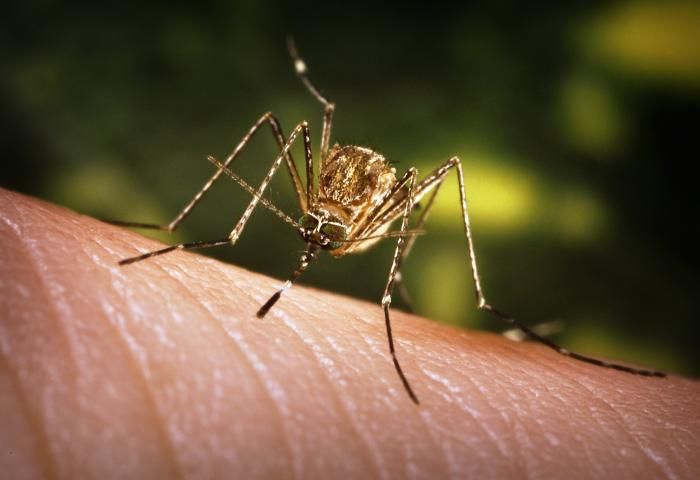Some information may be outdated.
Watch out for nighttime mosquitoes – especially if you’re planning a trip down to the sloughs just north of Moab.
For the first time in four years, Moab Mosquito Abatement District crews have found West Nile virus in specimens of Culex erythrothorax mosquitoes they collected at the Matheson Wetlands Preserve.
Moab Regional Hospital Emergency Room physician Dr. Angela Alexander said there haven’t been any confirmed cases of the flu-like virus in local residents so far this year. Although most people who are infected with West Nile never fall ill, residents can follow some simple precautions to avoid the possibility of becoming a statistic, according to Moab Mosquito Abatement District Manager Bob Phillips.
“It’s unlikely that anybody’s going to get it, but it’s preventable,” Phillips said. “It’s like wearing a seatbelt.”
For starters, people who are out at night or during the early morning hours can protect themselves by wearing long sleeves and plenty of insect repellent. They can also make sure that their window screens at home are in good shape, and if they’re camping outdoors, they should sleep inside screened tents.
“I think the important reminder for kids is, ‘Yeah, you can sleep in the back yard, but use a tent,’” he said.
Phillips said that residents can help the district by reporting stagnant water around town, since mosquitoes typically breed in unmaintained swimming pools and hot tubs, old tires, water-filled buckets, livestock water troughs and flood-irrigated fields.
“If people remove stagnant water from their property and irrigators properly manage their water, fewer Culex will be produced,” he said.
Of the 18 mosquito species in the valley, Phillips said that only four are known to potentially transmit the virus. Splitting that number down even further, only two are common pests, and so far this year, Phillips said the district has detected West Nile in only one of those species.
While other Culex mosquitoes may travel several kilometers in search of their next nighttime “blood meal,” Phillips said that Culex erythrothorax stick to the bulrush marshes in the sloughs near the Colorado River.
The species’ peak flight time typically runs for two hours after the first stars appear at sunset, so Phillips said they should not be confused with pesky daytime mosquitoes that are common on the west side of town.
“It’s more of a risk to duck hunters who may be out there (in the sloughs) in the early morning or evening,” he said.
At this point, Phillips said the district has no plans to spray adult mosquitoes with a mixture that includes the insecticide pyrethrum, which is derived from chrysanthemum flowers.
“We can’t drive a truck down into the sloughs,” he said. “It just isn’t possible.”
As a rule, it won’t target mosquitoes just because they’re annoying.
“Our policy is not to spray nuisance mosquitoes, but only to spray the vector mosquitoes that are capable of spreading disease,” he said.
If further tests or other indicators suggest that spraying, or “fogging,” is warranted, Phillips said the district will be ready to take action.
In that case, he said the district will announce its plans on local radio stations KZMU and KYCN. It will also reach out to residents who are on the district’s list of “chemically sensitive” individuals, since the insecticide can cause allergic responses – including severe asthma attacks – in susceptible individuals.
The hospital, meanwhile, has no plans to conduct tests for West Nile virus.
“It would be rare for us to test for (the virus), as only people with severe symptoms require further testing,” Alexander said. “There is no treatment for WNV and therefore little to gain by widespread testing of people with mild symptoms.”
Four out of five people who are infected with the virus will not fall ill, and most of the remainder will experience flu-like symptoms such as fevers, headaches and muscle aches that range in intensity from mild to severe.
In very rare cases, Alexander said, West Nile virus leads to severe illness.
“Anyone who has symptoms of severe illness such as mental-status changes, high fever, neck stiffness, sensitivity to light, or confusion should go to a hospital emergency department immediately,” she said.
Older residents face the greatest risk of serious illness; others at risk include people with weakened immune systems, diabetes, high blood pressure or kidney disease.
Abatement district advises common-sense precautions to prevent bites
It’s unlikely that anybody’s going to get (West Nile virus), but it’s preventable … It’s like wearing a seatbelt.
Anyone who would like to add her or his name to the list of “chemically sensitive” individuals should call the mosquito abatement district at 435-259-7161, since it has not been updated in the last four years. Residents can call the same number to report stagnant water in their neighborhoods.
Appreciate the coverage? Help keep local news alive.
Chip in to support the Moab Sun News.





